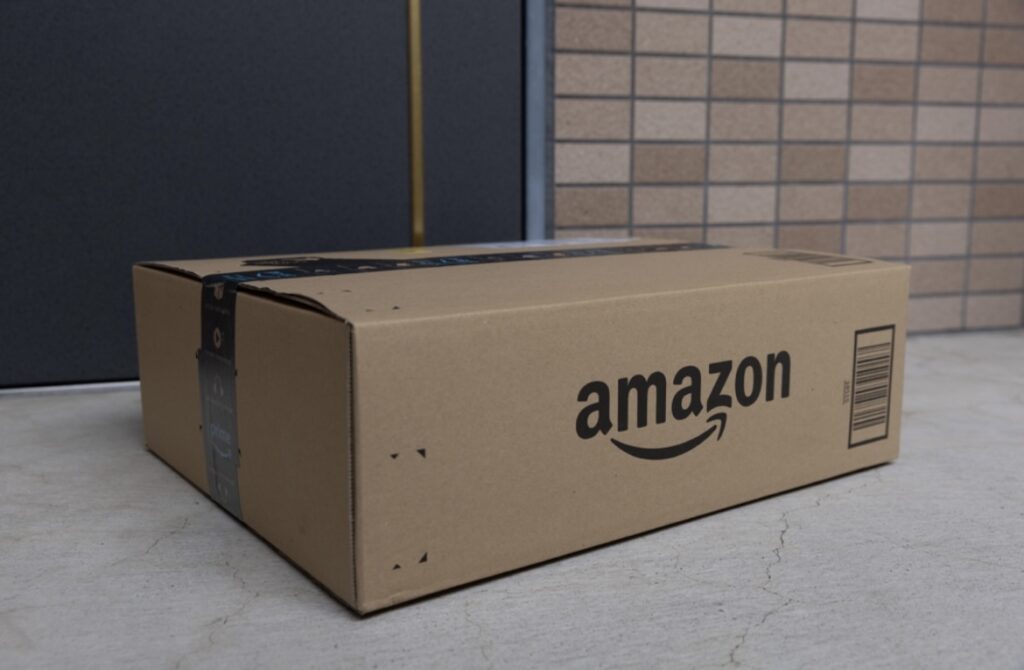Amazon is facing another competition lawsuit in the U.K. The latest claim, which was filed Thursday, is seeking more than £2.7 billion in damages — or around $3.4 billion at current exchange rates — before the U.K.’s Competition Appeals Tribunal.
The case is being brought by Andreas Stephan, a professor of competition law at the University of East Anglia and head of its Law School, on behalf of more than 200,000 U.K. third-party sellers on Amazon.
The lawsuit argues Amazon has abused a dominant position in the supply of marketplace services to third-party sellers to reach customers in the U.K. in a variety of ways — including by discriminating in favor of its own retail offerings instead of those of third parties; discriminating in favor of its own logistics services (Fulfilled by Amazon, or FBA); and unfairly conditioning access to its membership product Prime on use of FBA.
The claim also argues Amazon distorts inter-platform completion by making it harder for third-party sellers to sell cheaper on other platforms.
“As a result of these abuses, third-party sellers have lost sales, faced increased costs and paid higher fees to Amazon for its services than they would have under normal conditions of competition,” the complainant writes in a press release.
The accusations should be familiar as regional competition authorities have spent a number of years investigating complaints about Amazon’s use of third-party data and looking into how it operates various components of the marketplace, including FBA and Prime. Amazon has also faced similar antitrust charges in the U.S. in recent years.
Since the U.K. lawsuit is an opt-out collective action, eligible sellers are automatically included unless they ask not to be included. There are no costs for sellers to be included but if the claim prevails any sellers who have not opted out will be entitled to a share of any compensation or settlement.
The criteria for eligibility is any U.K.-based individual or company that used a professional account to sell to U.K. consumers on Amazon between June 2018 and June 2024. More details about the legal action — and a form to register for updates — can be found on the claim website.
The lawsuit is being funded by Innsworth Capital Limited, a major litigation funder that’s backing a number of other opt-out collective action lawsuits against tech giants in the U.K. and Europe — including a $3.1 billion competition claim against Meta; and privacy litigation against Oracle and Salesforce.
Innsworth will pay all the costs of the case and stands to gain a share of any compensation awarded or settlement payment Amazon may choose to make.
Amazon was contacted for comment on the U.K. lawsuit. A company spokesperson emailed this statement: “We are confident that these claims are baseless and that this will be exposed in the legal process. Over 100,000 small and medium sized businesses in the UK sell on Amazon’s store, more than half of all physical product sales on our UK store are from independent selling partners, and the fact is that we only succeed when the businesses we work with succeed.”
It’s not the first class action-style legal action the e-commerce giant has faced in the U.K. related to competition abuse claims. Earlier this month, a similar damages suit was filed by the British Independent Retailers Association on behalf of its thousands of members. In that case the suit is seeking £1.1 billion in compensation.
Asked whether Stephan sees any prospect of the two collective U.K. competition abuse claims being combined, he told TechCrunch: “It is too early at this stage to say whether our claim will be heard as a standalone claim or whether it could be combined. What we can say is that we are confident we have set out a compelling case on behalf of the class we are seeking to represent, we have a compelling methodology and we will do everything we can to progress the matter in a timely manner.”
As noted above, the wave of competition litigation targeting Amazon follows years of antitrust scrutiny in the U.K. and Europe over its use of third-party sellers’ data and concerns its marketplace is not a level playing field.
In recent years, the U.S. e-commerce giant has also been battling accusations of competition abuse on home turf. Last September the Federal Trade Commission, joined by attorneys general from 17 states, filed suit against Amazon alleging it has used an array of monopolistic practices to illegally stifle competition.
Washington, DC’s attorney general also lodged an earlier claim, back in May 2021, accusing Amazon of stifling competition by exerting control over third-party sellers, including through price fixing and blocking third-party sellers from selling their products for less elsewhere.
Amazon settled the EU antitrust probes in December 2022 without receiving a financial sanction. However, it agreed to make a series of changes to how it operates its marketplace. It made a similar settlement with the U.K.’s Competition and Markets Authority last November — again without a financial penalty for past conduct.
Even if there had been penalties levied by antitrust regulators, such fines would only sanction the company itself. This kind of enforcement does not provide any direct relief for victims of abusive behavior — hence there’s an opportunity for damages claims, and litigation funders, to step in.
This report was updated with Stephan’s response to our question; and with comment from Amazon


